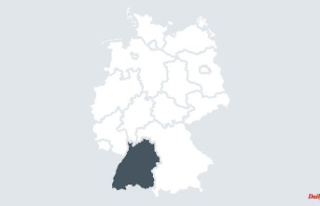People without a degree often end up in precarious positions in the labor market - and are missing out as skilled workers. Particularly vulnerable groups: boys, foreigners, special needs students. A study shows that little has happened in this area recently.
Gütersloh/Stuttgart (dpa/lsw) - Year after year, thousands of young people in Baden-Württemberg leave school without at least getting the secondary school certificate. This emerges from an evaluation commissioned by the Bertelsmann Foundation. According to this, 6209 young people did not graduate in Baden-Württemberg in 2021. That was 5.8 percent of the country's population of the same age.
As the ten-year comparison shows, the proportion of young people without a school-leaving certificate has increased, but it also varies greatly. In the southwest it was 5.1 percent in 2011, but six years later it was also 6.5 percent. In 2020 there were still significantly fewer than in the following year (2020: 5612 or 5.2 percent).
There are clear differences in the proportion of school leavers without qualifications in the federal states. Bavaria (5.1) and Hesse (5.3 percent) have the lowest rate, followed by Baden-Württemberg. Most recently, most young people without a degree were in Bremen, where this applied to every tenth school leaver. Some federal states were able to reduce their comparatively high rates during the period under study, such as Mecklenburg-Western Pomerania (from 13.3 to 8.1 percent), Saxony-Anhalt (from 12.1 to 9.6 percent) and Berlin (from 9.7 to 6.7 percent). Nationwide, the proportion was 6.2 percent.
According to the study, at the end of their school career, boys are far more likely to have no qualifications than girls. Foreigners are disproportionately affected. "Every young person without a school-leaving certificate is one too many," said education researcher Klaus Klemm, one of the authors of the study. "In view of the growing shortage of skilled workers, our society cannot afford to let these people fall through the cracks."
Because people without a degree have a higher risk of ending up in precarious employment. According to the study, many of the current graduates without a degree are in danger of joining the approximately 1.7 million young adults aged 20 to 30 without training who were living in Germany as of 2021.
In view of the "frighteningly high numbers", measures to reduce the quota are indispensable, and the focus of efforts should be on boys and schoolchildren with a migration background, according to the study. The Bertelsmann Foundation also recommended documenting the skills the young people have learned in addition to the classic diploma. That would increase the chance of an apprenticeship even without a formal qualification. Another lever is the training guarantee. The traffic light parties have anchored this in their coalition agreement.












